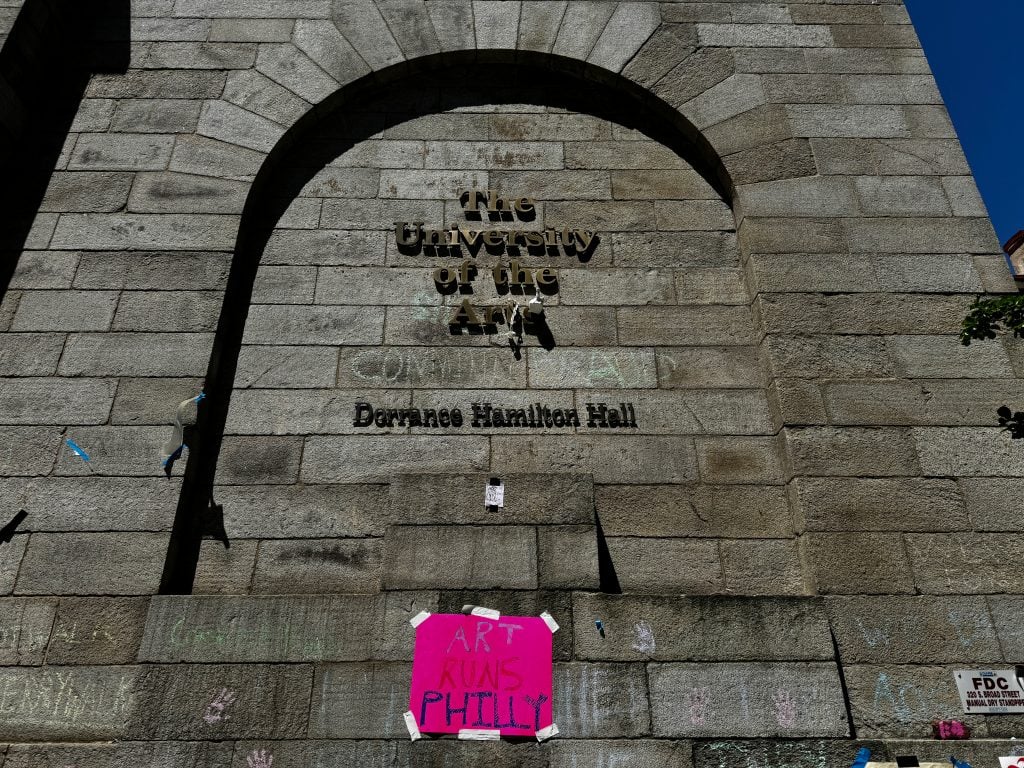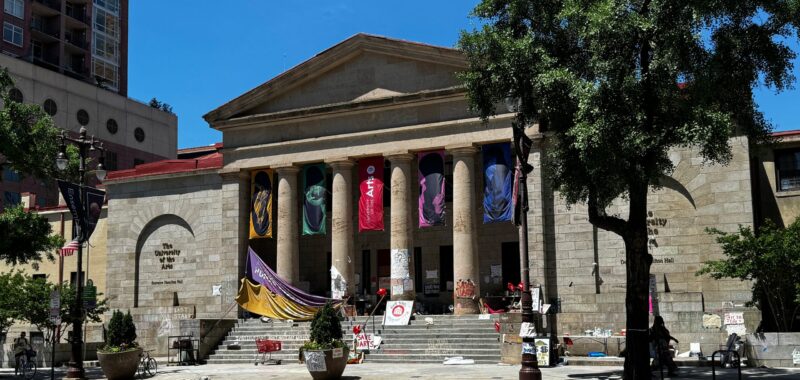Turmoil continues to surround the abrupt closure of the University of the Arts (UArts) in Philadelphia just over two months ago, at the end of the Spring semester.
The shuttered school is now subject to a demand for immediate repayment of a more than $50 million debt, as reported by Bloomberg. According to a regulatory filing on Electronic Municipal Market Access, dated August 28, the university was notified by UMB Bank, identified as a “successor trustee” of “events of default” and accelerated “demand for payment,” in total of $51.7 million related to a bond series that dates to 2017. Under the terms of an acceleration, bondholders can demand that the debt be paid immediately.
According to the filing, in a letter dated June 21, the bank sent UArts the related notice. “Since the notice date, the bonds (and the university’s obligations under the loan agreement) are and have due and payable in full. Given the university announced its permanent closure prior to the appointment of the successor trustee, the university has been unable to make payments under the loan agreement since the notice date,” according to the filing.
The 150-year old institution abruptly closed its doors in June and fired roughly 600 faculty members, which sparked a review by the office of the Pennsylvania attorney general. The attorney general’s office did not have comment or any update on the debt repayment demand.
Earlier, in June, a representative of the office told Artnet News: “We are very concerned by the sudden closure of University of the Arts, which has impacted students, staff, and the community. We are reviewing the circumstances of the closure and any transfer or loss of assets.”
Some UArts faculty and students have also filed a federal class action lawsuit, documents show. The claimants are alleging breach of contract, breach of implied contract, and unjust enrichment by the university administration, as well as fraud and violations of the Pennsylvania consumer protection laws.

The University of the Arts in Philadelphia after a June 7 protest. Photo: Min Chen.
Also in June, the Philadelphia City Council passed a resolution authorizing its education committee to hold hearings to examine the sudden closing. Asked for comment, a representative for the council confirmed that a hearing, sponsored by Council member Mark Squilla, took place earlier this month on August 8.
In a transcript of the hearing, Debora Carrera, chief education officer for the City of Philadelphia expressed “deep concern and disappointment” regarding the sudden and unexpected closure. She called UArts “a cornerstone” of the city’s cultural and educational landscape. The abrupt decision “without prior notice or consultation with the city, students, faculty and staff, left many in shock and uncertainty. This action disrupted not only the lives of students who invested time, effort, and resources into their education but also the faculty, and impacted staff.”
Carrera said many questions remain unanswered including: what led to the decision to shutter the school and why it was made without warning; what provisions were made for the students without a place to continue their studies; what support is in place for faculty and staff during the transition; and what happens to the universities facilities and resources.
She added that after learning of the closure and understanding the “tremendous impact” it would have on so many in the city, the mayor set out to ensure that the governor’s office and all Philadelphia elected officials would share information and work together. The hearing also outlined a timeline of events and ultimately unsuccessful attempts to stay in communication with school leaders.
The school announced on May 31 that it would close within one week, by June 7. It canceled summer classes and noted “a fragile financial state” with “many years of declining enrollments.” The former president of the university, Kerry Walk, who had served in that role for less than a year, resigned after the closure announcement.
UArts’s statement continued: “We could not overcome the ultimate challenge we faced: with a cash position that has steadily weakened, we could not cover significant, unanticipated expenses… The situation came to light very suddenly. Despite swift action, we were unable to bridge the necessary gaps.”
Follow Artnet News on Facebook:
Want to stay ahead of the art world? Subscribe to our newsletter to get the breaking news, eye-opening interviews, and incisive critical takes that drive the conversation forward.

